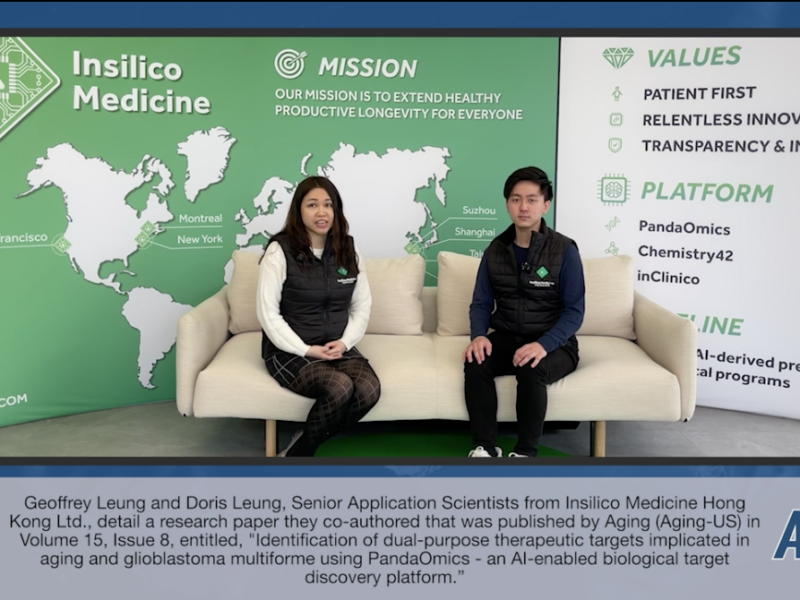Geoffrey Leung and Dr. Doris Leung, Senior Application Scientists from Insilico Medicine Hong Kong Ltd., detail a research paper they co-authored that was published by Aging (Aging-US) in Volume 15, Issue 8, entitled, “Identification of dual-purpose therapeutic targets implicated in aging and glioblastoma multiforme using PandaOmics – an AI-enabled biological target discovery platform.”
Aging (Aging-US) Authors
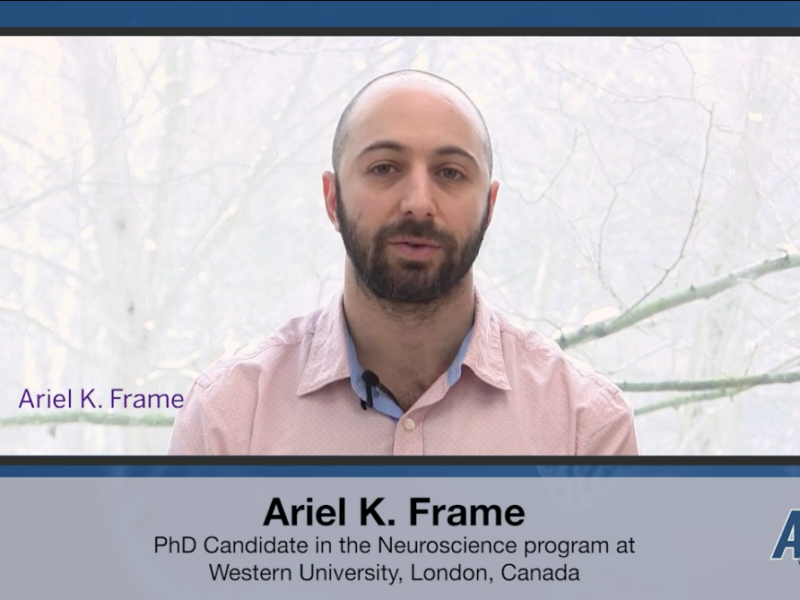
Ariel K. Frame from Western University discusses a research paper he co-authored that was published by Aging (Aging-US) in Volume 15, Issue 4, entitled, “Aging and memory are altered by genetically manipulating lactate dehydrogenase in the neurons or glia of flies.”
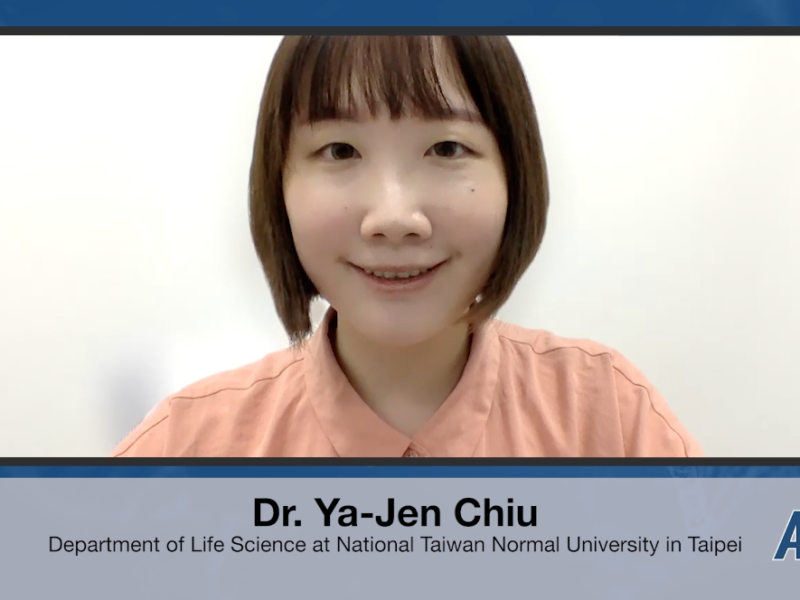
Dr. Ya-Jen Chiu discusses a research paper she co-authored that was published by Aging (Aging-US) in Volume 14, Issue 18, entitled, “Novel TRKB agonists activate TRKB and downstream ERK and AKT signaling to protect Aβ-GFP SH-SY5Y cells against Aβ toxicity.”
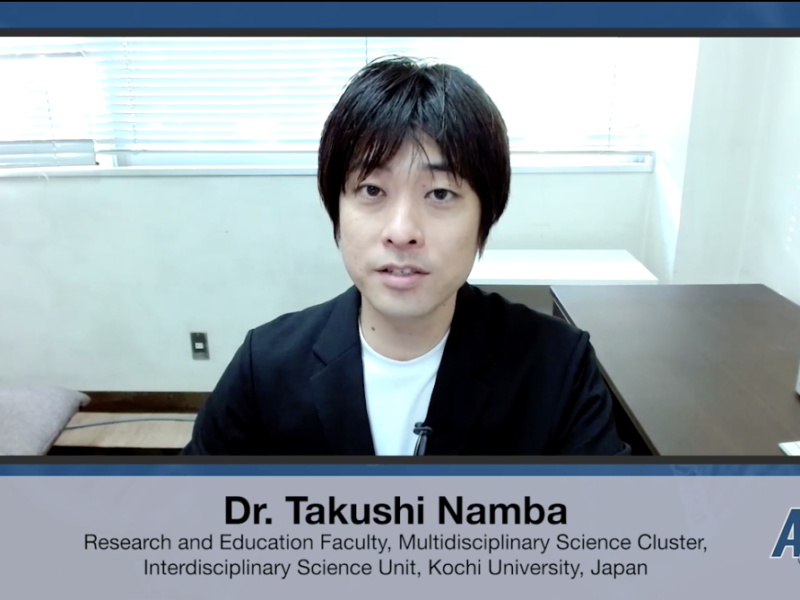
Dr. Takushi Namba discusses a research paper he co-authored that was published by Aging (Aging-US), entitled, “Lotus germ extract rejuvenates aging fibroblasts via restoration of disrupted proteostasis by the induction of autophagy.”

Fedor Galkin, Scientific Director at Deep Longevity, Inc., discusses a research paper he co-authored that was published by Aging (Aging-US) in Volume 14, Issue 18, entitled, “Psychological factors substantially contribute to biological aging: evidence from the aging rate in Chinese older adults.”

Dr. May Beydoun discusses a research paper she co-authored that was published by Aging (Aging-US) as the cover for Volume 14, Issue 13, entitled, “Epigenetic clocks and their association with trajectories in perceived discrimination and depressive symptoms among US middle-aged and older adults.”

PRESS RELEASE: A new research paper was published in Aging’s Volume 14, Issue 16, entitled, “Synergism of BCL-2 family inhibitors facilitates selective elimination of senescent cells.”

Dr. Cristina Aguayo-Mazzucato from Beta Cell Aging Lab, Joslin Diabetes Center, Harvard Medical School, discusses an editorial she co-authored that was published by Aging (Aging-US) in Volume 14, Issue 11, entitled, “Biological age in diabetes and precision medicine.”
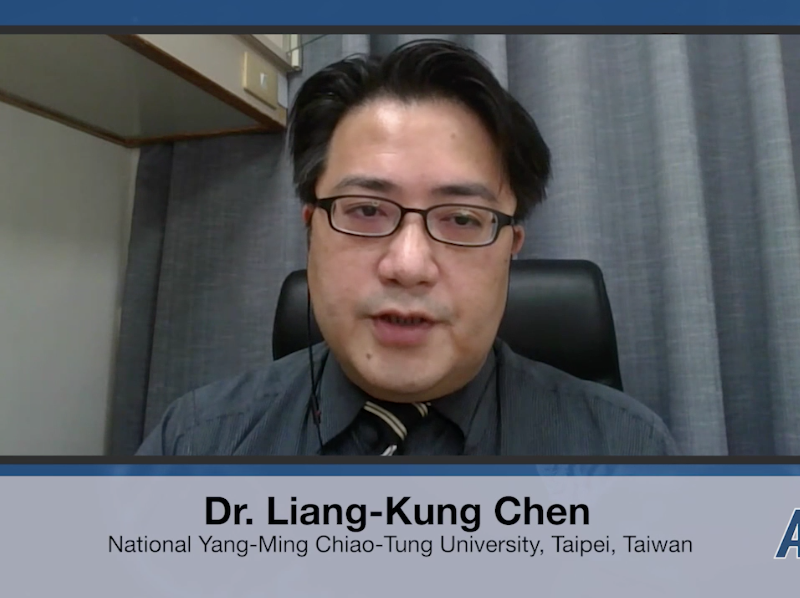
Dr. Liang-Kung Chen details a research paper he co-authored that was published by Aging (Aging-US) in Volume 14, Issue 3, entitled, “Predicting neuropsychiatric symptoms of persons with dementia in a day care center using a facial expression recognition system.”
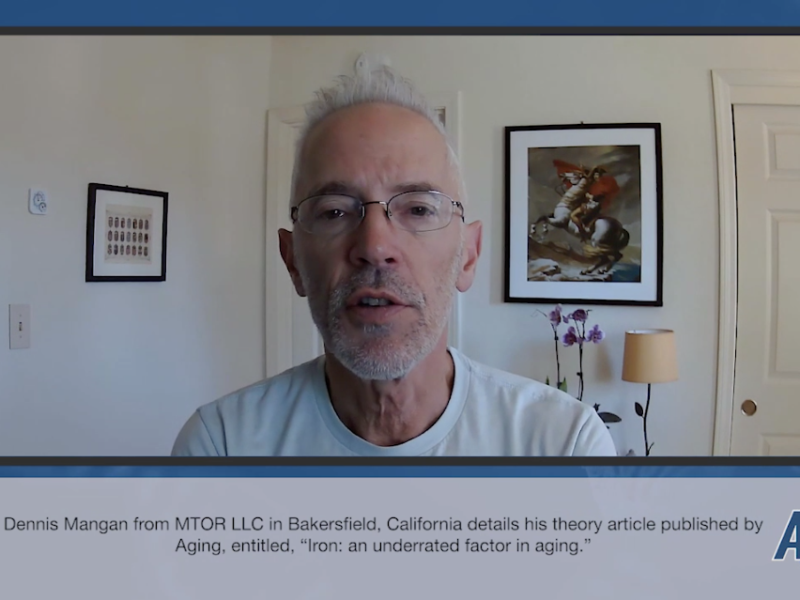
Dennis Mangan from MTOR LLC in Bakersfield, California details his theory article published by Aging (Aging-US), entitled, “Iron: an underrated factor in aging.”
